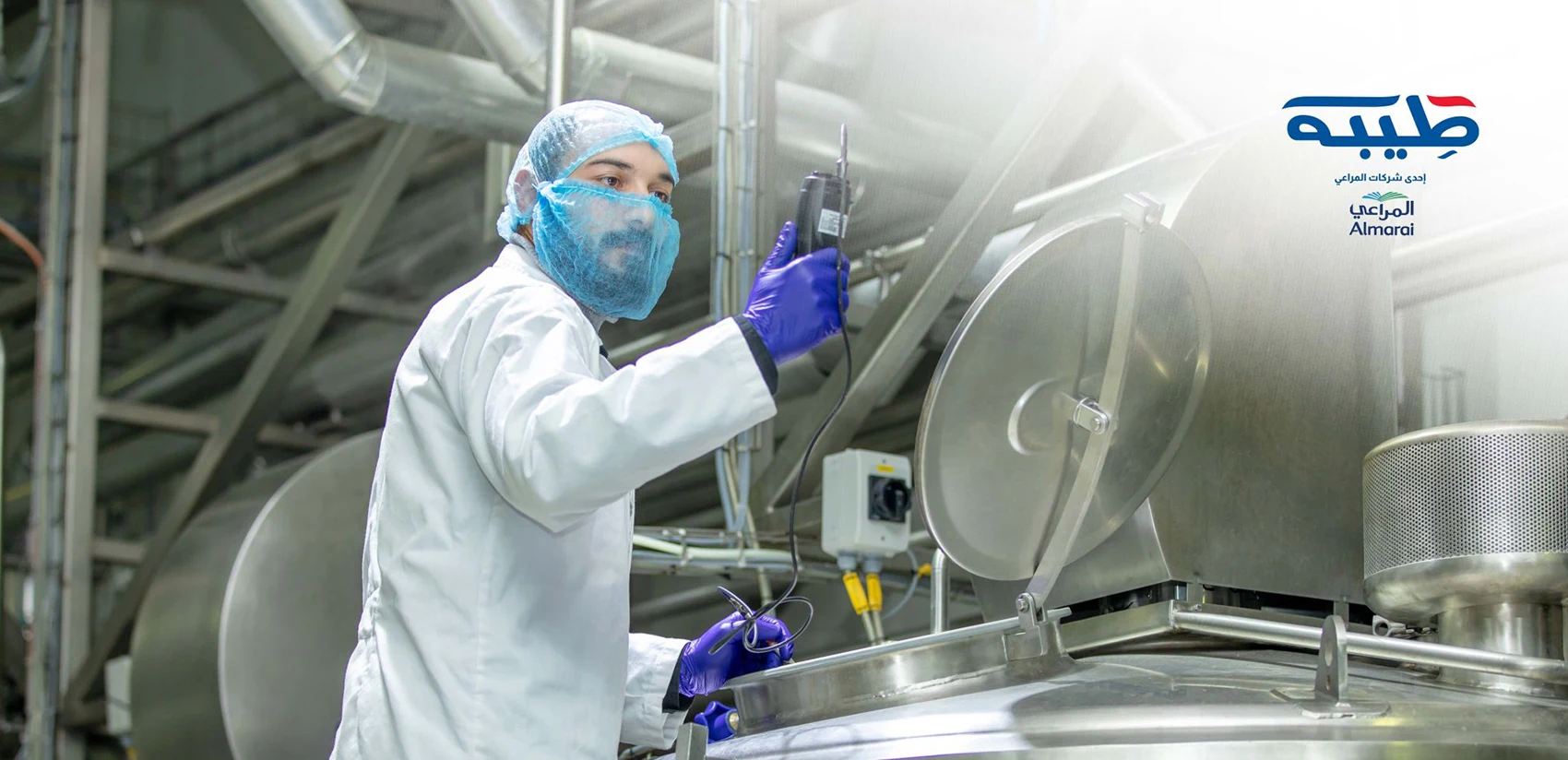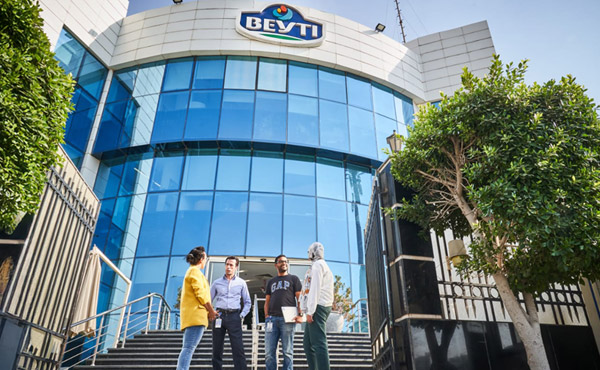Our Sustainability Performance
| 2021 | 2022 | 2023 | 2024 |
| Number of incidents of non-compliance with environmental laws and regulations | 0 | 0 | 0 | 0 | 0 | 0 |
*Figures are restated in 2024, following the improvements to the data collection systems and analysis
Our Sustainability Performance
| 2021 | 2022 | 2023 | 2024 |
|
Number of incidents of non-compliance concerning product information and labeling |
0 |
0 |
0 |
0 |
0 |
|
|
Number of incidents of non-compliance with regulations and/or voluntary codes concerning marketing communications |
0 |
0 |
0 |
0 |
0 |
0 |
|
Percentage of significant product categories covered by and assessed for compliance with product information and labeling procedures (%) |
100 |
100 |
100% |
100% |
100% |
100% |
| Number of employee lost time injuries | 23 | 15 | 8 | 4 | 23 | 25 |
| Contractor lost-time injuries | 0 | 0 | 0 | 0 | 0 | 0 |
| Employee lost-time injury rate (per 1 mln man-hours) | 9.48 | 8.68 | 7.7 | 3.71 | 7.28 | 9.24 |
| Contractor lost-time injury rate (per 1 mln man-hours) | 0 | 0 | 0 | 0 | 0 | 0 |
| Hours of employee health and safety training | 507 | 883 | 391 | 421 | 2495 | 5525 |
| Hours of contractor health and safety training | 50 | 100 | 0 | 231 | 144 | 90 |
| Average hours of health and safety training per employee | 0.8 | 1.1 | 0.37 | 0.35 | 2.00 | 4.35 |
| Average hours of health and safety training per contractor | 1.7 | 1.7 | 0.0 | 0.53* | 3.3 | 1.8 |
| Employee absenteeism rate (%) | 1.7 | 1.7 | 1% | 1% | 1% | 1% |
| Number of employees | 837 | 798 | 1,065 | 1,188 | 1,246 | 1270 |
| Male employees | 816 | 775 | 1,039 | 1,160 | 1,211 | 1230 |
| Female employees | 21 | 23 | 26 | 28 | 35 | 40 |
| Full time, male employees | 816 | 775 | 962 | 1,160 | 1,211 | 1212 |
| Full time, female employees | 21 | 23 | 26 | 28 | 35 | 40 |
| Part time, male employees | 0 | 0 | 0 | 178 | 0 | 0 |
| Part time, female employees | 0 | 0 | 0 | 26 | 0 | 0 |
| Senior management employees | 22 | 15 | 16 | 9 | 10 | 10 |
| Middle management employees | 99 | 14 | 28 | 32 | 32 | 31 |
| Non-management employees | 716 | 769 | 944 | 1,147 | 1,190 | 1216 |
| New employee hires | 14 | 19 | 252 | 371 | 266 | 219 |
| New employee hires, age 18-30 | 9 | 14 | 188 | 269 | 180 | 145 |
| 64.3% | 73.7% | 74.6% | 72.5% | 67.7% | 66.2% | |
| New employee hires, age 31-50 | 5 | 5 | 64 | 100 | 85 | 74 |
| 35.7% | 26.3% | 25.4% | 27.0% | 32.0% | 33.8% | |
| New employee hires, age 51+ | 0 | 0 | 0 | 2 | 1 | 0 |
| 0% | 0% | 0% | 1% | 0% | 0% | |
| New employee hires, male | 14 | 14 | 314 | 362 | 251 | 207 |
| 100% | 73.7% | 124.6% | 97.6% | 94.4% | 94.5% | |
| New employee hires, female | 0 | 0 | 3 | 9 | 15 | 12 |
| 0% | 1% | 2% | 6% | 5% | ||
| Voluntary employee turnover | 177 | 9 | 92* | 266* | 97 | 187 |
| 21.1% | 1.1% | 8.6%* | 22.4%* | 7.8% | 14.7% | |
| Voluntary employee turnover, age 18-30 | 134 | 3 | 79* | 172* | 70 | 110 |
| 75.7% | 33.3% | 85.9%* | 64.7%* | 72.2% | 58.8% | |
| Voluntary employee turnover, age 31-50 | 40 | 5 | 8* | 89* | 27 | 75 |
| 22.6% | 55.6% | 8.7%* | 33.5%* | 27.8% | 40.1% | |
| Voluntary employee turnover, age 51+ | 176 | 1 | 5* | 5* | 0 | 2 |
| 99.4% | 11.1% | 5.4%* | 1.9%* | 0.0% | 1.1% | |
| Voluntary employee turnover, male | 176 | 9 | 84* | 259* | 92 | 179 |
| 99.4% | 100% | 91.3%* | 97.4%* | 94.8% | 95.7% | |
| Voluntary employee turnover, female | 1 | 0 | 2* | 7* | 5 | 8 |
| 0.6% | 0% | 2.2%* | 2.6%* | 5.2% | 4.3% | |
| Female employment rate (%) | 2.6% | 2.7% | 2.4% | 2.9% | 3.3% | |
| Women in senior management | 2 | 1 | 0 | 2 | 2 | 2 |
| 9.1% | 6.7% | 0.0% | 22.2% | 20.0% | 20.0% | |
| Women in middle management | 8 | 4 | 6 | 8 | 5 | 6 |
| 8.1% | 28.6% | 21.4% | 25.0% | 15.6% | 19.4% | |
| Women in non-management positions | 11 | 17 | 17 | 20 | 28 | 32 |
| 1.5% | 2.2% | 1.8% | 1.7% | 2.4% | 2.6% | |
| Board seats occupied by women | 0 | 1 | 2 | 1 | 1 | 0 |
| 0% | 12.5% | 25.0% | 12.5% | 12.5% | 0.0% | |
| Number of employees with a disability | 17 | 17 | 15 | 15 | 15 | 14 |
| Number of formal incidents of discrimination reported | 0 | 0 | 0 | 0 | 0 | 0 |
| Percentage of working time lost due to industrial disputes, strikes and/or lock-outs (%) | <1% | 0 | 0 | 0 | 0 | 0 |
| Number of female employees entitled to maternity leave | 15 | 11 | 10 | 16 | 11 | 13 |
| Number of female employees that took parental leave | 2 | 0 | 0 | 1* | 2 | 1 |
| Number of female employees that returned to work in the reporting period after parental leave ended | 2 | 0 | 0 | 1* | 2 | 1 |
| Number of female employees that returned to work after parental leave ended that were still employed 12 months after their return to work | 2 | 0 | 0 | 1 | 2 | 1 |
| Female employee return to work rate of employees that took parental leave (%) | 100% | N/A | 0% | 100%* | 100% | 100% |
| Female employee retention rate of employees that took parental leave (%) | 100% | N/A | 0% | 0% | 100% | 100% |
| Total hours of training provided | 1600 | 4956 | 9,584 | 12,439 | 18,627 | 18553 |
| Average hours of training per employee | 1.91 | 6.21 | 9.00 | 10.47 | 14.95 | 14.61 |
| Percentage of employees receiving regular performance and career development reviews (%) | N/A | N/A | 100% | 100% | 100% | 100% |
|
Total CSR spending ( |
40,280 |
279,635 |
691,298 |
827,751 |
650,000 |
|
|
Number of school and university visitors hosted |
N/A |
438 |
0 |
726 |
847 |
593 |
|
Product donations (Number of servings) |
N/A |
7,583 |
174,405 |
199,385 |
548,670 |
129,623 |
*Figures are restated in 2024, following the improvements to the data collection systems and analysis
Our Sustainability Performance
| 2021 | 2022 | 2023 | 2024 |
| Water withdrawal (m3) | 164,310 | 175,272 | 372,250 | 267,540 | 251,556 | 278,455 |
| Water recycling and reuse (m3) | 107,800 | 120,416 | 178,191 | 159,597 | 213,131 | 216,633 |
| Percentage of water recycled and/or reused (%) | 66% | 69% | 48% | 60% | 85% | 78% |
| Total water consumption (m3) | 272,110 | 295,688 | 387,070 | 427,137 | 464,687 | 495,088 |
| Water discharge (m3) | 122,987 | 135,096 | 184,515 | 170,797 | 237,285 | 242,401 |
| Manufacturing water intensity (m3/metric ton of finished product) | 6 | 6 | 9 | 6 | 5 | 5 |
| Percentage of card board coming from recycled materials used as an input material (%) | N/A | N/A | N/A | N/A | N/A | N/A |
| Plastics removed from packaging (tons) | N/A | N/A | N/A | N/A | N/A | N/A |
| Paper removed from packaging (tons) | N/A | N/A | N/A | N/A | N/A | N/A |
| Total packaging removed from the consumer waste stream (tons) | N/A | N/A | N/A | N/A | N/A | N/A |
| Direct stationary energy usage (in thousands kWh) | 8,527 | 9,624 | 12,331 | 3,853 | 11,498 | 12,358 |
| Indirect stationary energy usage (in thousands kWh) | 9,439 | 9,349 | 12,985 | 10,002 | 13,075 | 14,342 |
| Total stationary energy usage (direct and indirect, in thousands kWh) | 17,966 | 25,316 | 13,855 | 24,573 | 26,700 | |
| Total solar energy usage (in thousand kWh) | 0 | 298 | 167 | 600 | 408 | 567 |
| Percentage of electricity consumption from solar (%) | 0 | 0 | 1% | 4% | 2% | 2% |
| Almarai owned refrigerators in stores (in thousands kWh) | N/A | N/A | N/A | N/A | N/A | N/A |
| Manufacturing energy intensity (kWh/metric ton of finished product) | 535 | 575 | 456 | 415 | 413 | 371 |
| Total vehicle fuel consumption (thousands of liters) | 1,983 | 215 | 950 | 3,520 | 6,890 | 5,963 |
| Scope 1 (direct) emissions (metric tons CO2e) | 5,744 | 2,859 | 5,949 | 5,608 | 20,981 | 18,845 |
| Scope 2 (indirect) emissions (metric tons CO2e) | 7,344 | 10,102 | 11,542 | 10,172* | 5,303 | |
| Scope 3 emissions from Almarai refrigerators in stores (metric tons CO2e) | N/A | N/A | N/A | N/A | N/A | N/A |
| Total emissions (metric tons CO2e) | 13,088 | 10,132 | 16,051 | 17,150 | 31,153* | 24,148 |
| Manufacturing emissions intensity (metric tons CO2e/metric ton of finished product) | 0.26 | 0.23 | 0.37 | 0.20 | 0.20* | 0.13 |
| Emissions from refrigerant leakage and replacement (metric tons CO2e) | 20 | N/A | N/A | N/A | N/A | N/A |
| Food waste resold for animal feed (Store returns and operational) (metric tons) | 0 | 0 | 0 | 0 | 0 | 0 |
| Recycled waste (metric tons) | 0 | 0 | 0 | 274 | 285 | 1,464 |
| Total waste generated (metric tons) | 4,242 | 3,508 | 250 | 51,830* | 49,265 | 57,998 |
| Waste sent to landfill (metric tons) | 4,242 | 3,508 | 250 | 51,556* | 48,980 | 56,533 |
| Percentage of waste sent to landfill (%) | 100% | 100% | 100% | 99%* | 99% | 97% |
*Figures are restated in 2024, following the improvements to the data collection systems and analysis
Our Sustainability Performance
| 2021 | 2022 | 2023 | 2024 |
| Percentage of production volume manufactured in sites certified by an independent third party according to internationally recognized food safety management system standard (%) | 100% | 100% | 100% | 100% | 100% | 100% |
| Number of incidents of non-compliance with regulations and/or voluntary codes concerning the health and safety impacts of products and services | 0 | 0 | 0 | 0 | 0 | 0 |
| Number of recalls | 0 | 0 | 0 | 0 | 0 | 0 |
| Percentage of significant product categories covered by and assessed for compliance with product information and labeling procedures (%) | 100% | 100% | 100% | 100% | 100% | 100% |
| Percentage of products which health and safety impacts are assessed for improvement (%) | 100% | 100% | 100% | 100% | 100% | 100% |
| Total number of manufacturing plants | 1 | 1 | 1 | 1 | 1 | |
| Number of Food Safety System Certification (FSSC) 22000 certified plants | 0 | 1 | 1* | 1 | 1 | |
| Number of Global Food Safety Initiative (GFSI) certified plants | 0 | 0 | 1 | 1 | 1 | 1 |
| Percentage of plants that are GFSI certified (%) | 0% | 0% | 100% | 100% | 100% | 100% |
| Number of food safety and quality assurance employees | 2 | 2 | 5* | 3 | 5 | 5 |
| Number of cows | 2,373 | 2,841 | 3,200 | 3,596 | 3,694 | 4,727 |
| Number of chickens processed | N/A | N/A | N/A | N/A | N/A | N/A |
| Number of incidents of non-compliance with laws regulations, and adherence with voluntary standards related to transportation, handling, and slaughter practices for live terrestrial and aquatic mammals | 0 | 0 | 0 | 0 | 0 | 0 |
| Percentage of cows in enclosed housing with resting areas (%) | 100% | 100% | 100%* | 100%* | 100% | 100% |
| Percentage of chickens in enclosed cage free housing (%) | N/A | N/A | N/A | N/A | N/A | N/A |
| Percentage of locally based suppliers engaged (%) | 91% | 93% | 100% | 100% | 93% | |
| Percentage of spending on locally based suppliers (%) | 57% | 88% | 90% | 90% | 82% | 80% |
| Total number of suppliers engaged | 349 | 330 | 700 | 719 | 445 | 512 |
| Total number of local suppliers engaged | 319 | 320 | 650 | 719 | 445 | 475 |
| Percentage of purchased volume from suppliers compliant with company's sourcing policy | 100% | 100% | 100% | 100% | 98% | 80% |
| Percentage of purchased volume which is verified as being in accordance with credible, internationally recognized responsible production standards | N/A | 40% | 100% | 25% | 90% | 80% |
| New suppliers that were screened using social and/or environmental criteria | 0 | 3 | 3 | 0 | 0 | |
| Number of negative social and/or environmental impacts in the supply chain and actions taken | N/A | 0 | 3 | 0 | 0 |
*Figures are restated in 2024, following the improvements to the data collection systems and analysis






